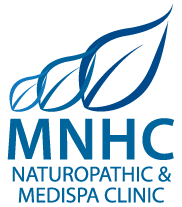Dear Dr Diana
How can I get a better handle on my hormones?
Hormonal disorders, also called endocrine disorders, are illnesses that occur when the body releases too many or too few hormones. Hormones are chemicals that are released into the bloodstream. They send messages to cells throughout the body in order to regulate bodily functions, such as growth, metabolism, and sexual development. As a result, patients with hormonal disorders experience a disruption in such bodily functions.
Hormones are part of the body’s endocrine system. The endocrine system is made up of several glands throughout the body that produce and secrete hormones. The major glands of the endocrine system include the adrenal glands, gonads (ovaries and testes), pancreas, pituitary gland, and the thyroid gland. Examples of hormones include cortisol, testosterone, estrogen, human growth hormone, insulin, thyroxine, and triiodothyronine
Here are some proven remedies to balance out the bodies hormone levels
Strong scientific evidence:
Alpha-lipoic acid: Many studies have shown that ALA may improve blood sugar levels among patients with type 2 diabetes. Higher-quality studies are needed to provide more definitive answers in the future.
Avoid if allergic to ALA. Use cautiously with diabetes and thyroid diseases. Avoid with thiamine deficiency or alcoholism. Avoid if pregnant or breastfeeding.
Arginine (L-arginine): L-arginine helps maintain the body’s fluid balance (urea, creatinine), and aids in wound healing, hair growth, sperm production (spermatogenesis), blood vessel relaxation (vasodilation), and fights infection. Intravenous arginine can be used for growth hormone reserve evaluation in people with suspected growth hormone deficiencies. Examples of these deficiencies include panhypopituitarism, growth/stature abnormalities, gigantism/acromegaly, or pituitary adenoma.
Avoid if allergic to arginine. Avoid with a history of stroke or liver or kidney disease. Avoid if pregnant or breastfeeding. Use cautiously if taking blood-thinners, blood pressure drugs, antidiabetic drugs, or herbs or supplements with similar effects. Blood potassium levels should be monitored. L-arginine may worsen symptoms of sickle cell disease.
Iodine: Iodine is an element (atomic number 53) that is required by humans for the synthesis of thyroid hormones (triiodothyronine/T3 and thyroxine/T4). Iodine deficiency is one of the causes of goiter (hypertrophy of the thyroid gland as it tries to make more thyroid hormone in the absence of iodine). Physically, goiter appears as an abnormal enlargement of the thyroid gland in the neck. Other causes of goiter include autoimmune thyroiditis, excess iodine, other hormonal disorders, radiation exposure, infectious causes, or inborn errors of metabolism. Although goiter due to low iodine intake is rare in developed countries, it may occur in regions with endemic low iodine levels. To avoid iodine deficiency in the United States, table salt is enriched with iodine (“iodized” salt), and iodine is added to cattle feed and used as a dough conditioner. Iodine supplementation for goiter prevention is generally not recommended in developed countries where sufficient iodine intake is common, and excess iodine can actually cause medical complications (including goiter).
Iodine supplementation should be considered in cases of known iodine deficiency, and should be administered with medical supervision if possible. Notably, the treatment of goiter usually involves administration of thyroid hormone, most commonly levothyroxine sodium (Synthroid®, Levoxyl®, Levothroid®). Iodine generally does not play a role in the acute management of this condition.
Reactions can be severe, and deaths have occurred with exposure to iodine. Avoid iodine-based products if allergic or hypersensitive to iodine. Do no use for more than 14 days. Avoid Lugol solution and saturated solution of potassium iodide (SSKI, PIMA) with hyperkalemia (high amounts of potassium in the blood), pulmonary edema (fluid in the lungs), bronchitis, or tuberculosis. Use sodium iodide cautiously with kidney failure. Avoid sodium iodide with gastrointestinal obstruction. Iodine is safe in recommended doses for pregnant or breastfeeding women.
Vitamin D: Vitamin D is found in numerous dietary sources such as fish, eggs, fortified milk, and cod liver oil. The sun is also a significant contributor to our daily production of vitamin D, and as little as 10 minutes of exposure is thought to be enough to prevent deficiencies. The term “vitamin D” refers to several different forms of this vitamin. Some individuals may develop secondary hyperparathyroidism due to low vitamin D levels. The initial treatment for this type of hyperparathyroidism is vitamin D. For individuals with primary or refractory hyperparathyroidism, surgical removal of the parathyroid glands is commonly recommended by healthcare professionals.
Hypoparathyroidism (low blood levels of parathyroid hormone) is rare, and is often due to surgical removal of the parathyroid glands. Oral doses of dihydrotachysterol (DHT), calcitriol, or ergocalciferol at high doses can assist in increasing serum calcium concentrations in people with hypocalcemia due to hypoparathyroidism or pseudohypoparathyroidism.
Avoid if allergic or hypersensitive to vitamin D or any of its components. Vitamin D is generally well-tolerated in recommended doses; doses higher than recommended may cause toxic effects. Use cautiously with hyperparathyroidism (overactive thyroid), kidney disease, sarcoidosis, tuberculosis, and histoplasmosis. Vitamin D is safe in pregnant and breastfeeding women when taken in recommended doses.
Dr Lorenzo Diana ND
Doctor Of Naturopathic Medicine

